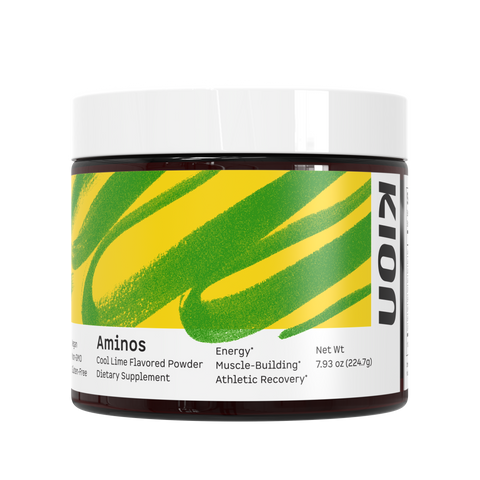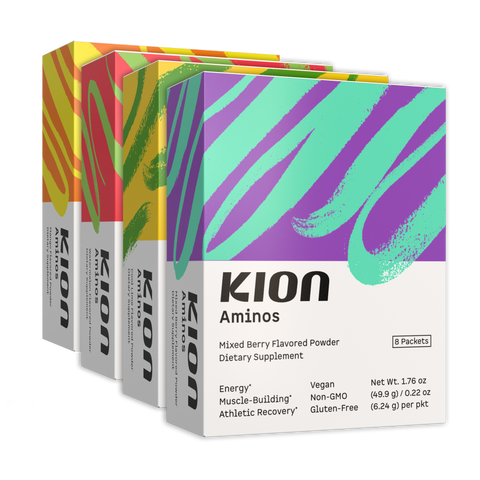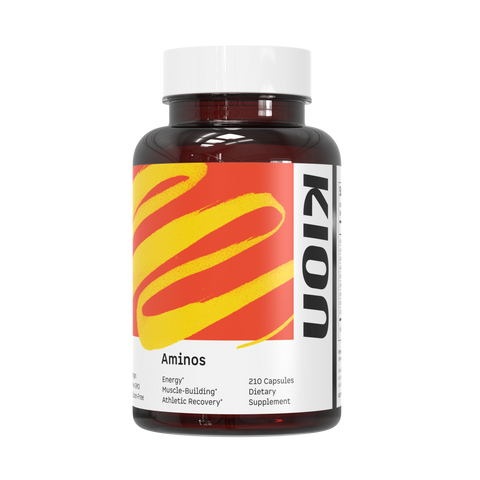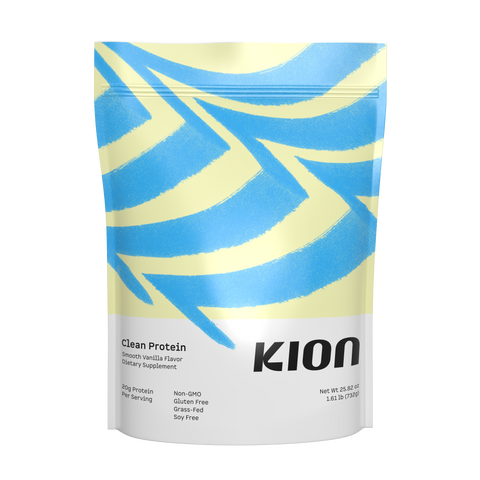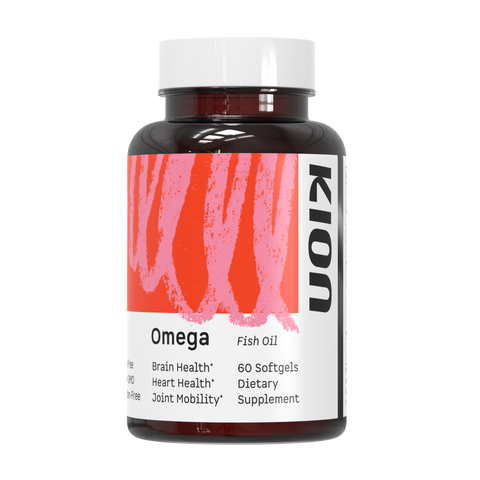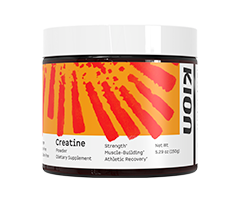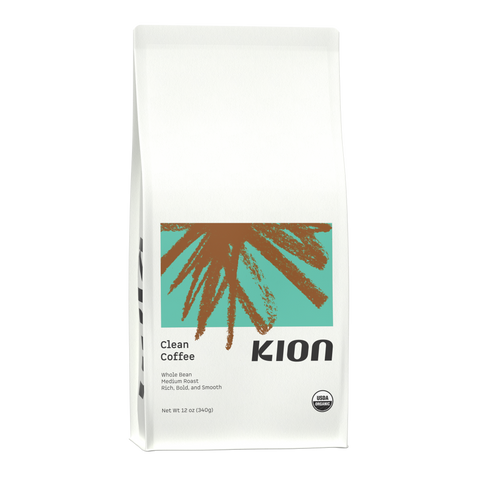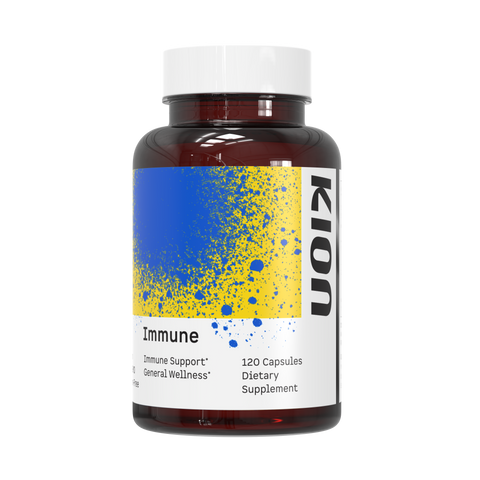Just think for a moment how much visual, auditory, and sensory information you’re exposed to and required to process every single day. From the TV or radio as constant background noise, to the phone ringing, to artificial lighting, to chemical-laden air fresheners circulating smells of fresh linen, to electromagnetic fields piercing through your brain, to the new procedure you have to learn at work, the human brain has to organize and deal with this information all while keeping you upright and going.
Although the human brain has incredible skills and unimaginable capabilities, modern living creates unprecedented stress and sensory overload from all of the information it’s required to process every single day. Sensory overload has even been shown to cause irritability, anxiety, mood swings, depression, ADHD, fibromyalgia, PTSD, and chronic fatigue syndrome. The ability of your brain to continue learning, processing, and forming new neuronal connections is key to maintaining optimal brain health and longevity.
Before you go lock yourself in a dark, quiet room in order to prevent this overburden on your brain, you should know that there are actually scientifically researched nutrients designed to amplify cognitive function and help your brain deal with this sensory stress load. In fact, when combined together and in the right dosage, these nutrients can completely change how your brain performs. The fact that brain-boosting supplements even exist goes unnoticed by the average person just doing their best to accomplish their work, manage a home, eat properly, workout, maintain relationships, explore hobbies, and somehow sleep each night. Well, it’s time to wake up your brain. Welcome to the world of smart drugs and nootropics.
Smart drugs and nootropics are substances that boost cognitive function and enhance brain efficiency. They have the ability to improve brain performance so you can focus better, become more creative, increase your memory, boost productivity, and think more clearly. These substances are becoming well known and very popular in use, and one of the biggest myths surrounding smart drugs and nootropics is that they are the same thing.
Although they produce similar cognitive benefits, they do not have the same cognitive effect, safety, or side effects. A smart drug is a prescribed medication or generic label drug that is used to treat a mental or cognitive disorder. A few examples of smart drugs are Adderall, Ritalin, and Modafinil. Smart drugs may relieve a mental or cognitive disorder, but the treatment comes with a cost. These drugs are stimulants that produce spikes in dopamine and norepinephrine. The hormonal spikes these drugs produce can lead to tolerance, poor habit formation, mood instability, depression, anxiety, stroke, and adverse effects on appetite, cardiac function, stress levels, and sleep.
Since drugs like Adderall and Modafinil are considered amphetamines, they compete with other neurotransmitters for uptake. This competition can deplete nutrients very quickly elsewhere, like in dopamine and norepinephrine levels. For this reason, you must be careful you know what you’re doing when you step into the world of smart drugs and nootropics.
Want similar cognitive benefits without all of those nasty side effects? Nootropics boost the brain without the side effects of a stimulant or chemical-laden drug. Nootropics are non-prescribed compounds including vitamins, herbs, and other natural and synthetic compounds that provide a daily cognitive boost, protect your brain, and support peak cognitive function. Nootropics provide these benefits without neurotransmitter depletions, adverse body side effects, or building a tolerance or reliance. The mechanisms for nootropics are quite different than smart drugs in the way they act within the structural connectivity of the brain, the improvement of blood flow and oxygenation, and the long-term strengthening of various brain regions. Think of nootropics like a super supplement for cognitive function and protecting your brain.
Unlike smart drugs, the majority of people can take nootropics without suffering side effects, however, there are both natural, and synthetic, lab-created nootropics. Listed below is a roundup of both natural and synthetic nootropics that will equip you with the knowledge you need in order to decide which nootropics to take to accomplish your goals, ranging from faster reaction time to mood enhancement to reduced anxiety to better focus and more.
Natural Nootropics
- Huperzine-A naturally comes from the Chinese club moss plant. Although there is a small amount of laboratory manipulation, the effects are outweighed by the finalized highly pure substance. Huperzine-A has no toxicity and minimal to no side effects. Research shows that huperzine-A can improve memory, elevate mood, improve neurological and cognitive functions, reduce inflammation, and act as an anticonvulsant. It protects the brain and strengthens memory, improves brain neuroplasticity (helps the brain form and reorganize connections), improves neurogenesis (grows and develops neurons), and supports learning. Huperzine-A can be found in high amounts in the adaptogenic herb complex TianChi.
- Bacopa Monnieri is an extract that comes from the Brahmi plant. Bacopa has a variety of uses such as reducing anxiety and insomnia, improving cognitive functions, memory, concentration, thinking ability, and hand-eye coordination as well as has antistroke and anticonvulsant potentials. In one study, 300 mg was given daily to participants for 12 weeks and there were reported improvements in thinking ability and memory.
- Lion’s Mane, a natural, edible mushroom that is most commonly found in health food stores is also available as a supplement. Lion’s mane has the ability to regenerate the brain, protect the brain, reduce inflammation, has anticancer properties, and improves anxiety, cognitive function, and mood.
- Ginkgo Biloba, made from the leaves of the ginkgo biloba tree, has been used in Chinese medicine for thousands of years. Ginkgo biloba improves memory, attention, and blood flow to the brain. It has also been shown to reduce anxiety, inflammation, and oxidative stress.
- Artichoke Extract, also made from leaves, has potent antioxidant effects and enhances learning and memory.
- Tryptophan, a naturally occurring amino acid that is commonly known to make people sleepy, also has strong nootropic effects. Tryptophan has been shown to decrease memory deficits, help with mood and anxiety, as well as improve sleep. To ensure you’re consuming balanced ratios of amino acids, it’s best to take an essential amino acids blend like Kion Aminos.
- L-Theanine, also a naturally occurring amino acid, is found in high amounts in green tea and has been shown to reduce anxiety and neuroregeneration, improve mood and cognitive performance, and also induce relaxation. It combines well with caffeine (see below).
- CBD naturally comes from the cannabis plant and is considered a very powerful nootropic. It has been shown to enhance focus, creativity, and mood, as well as reduce general anxiety, social anxiety, chronic pain, stress, ADHD, insomnia, headaches, and inflammation.
Although these are not the only natural nootropics, this list provides you with the main ingredients in most nootropic and smart drug blends. After determining which nootropics address your specific cognitive enhancement goals, you can take it a step further and enhance the effects of the compounds by mixing and matching to create your own “nootropic stack.” A nootropic stack mixes different nootropics to obtain the best synergistic combination of each compound’s benefits.
Nootropic Stacks
While you may prefer the natural nootropics, the majority of synthetic nootropics have been generally regarded as safe and can be used in combination with natural ingredients. An example of this is Piracetam used in combination with choline and DHA. Piracetam is not found in nature; however, it is originally derived from and has similarities to the neurotransmitter GABA. Since Piracetam has been shown to improve cell membrane function and have neuroprotective effects, when combined with other cell membrane oriented supplements like choline and DHA, the brain cells can better signal and relay messages to each other, which improves cognition and brain activity.
When creating your own stack, you must carefully think about what your exact needs and goals are. For example, if you want to reduce anxiety and improve mood, but don’t necessarily care to enhance your cognitive performance, you would want to stick to just one nootropic that improves dopamine levels such as tryptophan. Or if you wanted to reduce anxiety and support mood while improving your memory, you could add Bacopa Monnieri with the tryptophan. Let’s say you do want a long-term cognitive performance that lasts an entire day, try adding Piracetam to the mix. Whatever you decide to do, use a strategy. Make sure the dose is safe, and understand exactly why you are putting the ingredient in, and how it may interact with the other compounds. For those of you who do not want to experiment, listed below are a few of the most common nootropic stacks.
- Caffeine and L-Theanine: Because caffeine can produce unwanted side effects in high amounts such as jitteriness and headaches, most people find that by adding L-Theanine to a caffeine mix it counteracts the negative side effects. For this effect, use a ratio of four parts L-Theanine to one part caffeine such as 400 mg L-Theanine and 100 mg of caffeine. You may want to start out with a smaller dose such as 200 mg L-Theanine and 50 mg caffeine and work your way up to find the best dose for you. Caffeine and L-Theanine in combination have been shown to boost concentration, attention, and energy while reducing anxiety.
- Ginkgo Biloba, Bacopa Monnieri, and Lion’s Mane: This particular blend boosts mental focus, memory, learning, and cognitive performance while reducing anxiety and supporting mood. Reviewers of this stack claim that it can boost mental alertness for around six hours at a time. It is important to note that most users also report a grace period of 12 weeks before noticing the stack’s full potential, so don’t expect immediate results with this combination. A typical dose for this type of combination consists of 500 mg per day of Lion’s Mane, 240 mg per day of Ginkgo Biloba, and 100 mg twice per day of Bacopa Monnieri. Consider buying each ingredient in bulk to have stock and experiment with. If you are not experiencing positive results after 12 weeks, try adjusting the dosages in small increments. For example, start by adjusting Bacopa Monnieri to 150 mg twice per day for a couple of weeks. Be patient, the end result is worth the trial and error.
- TianChi: One of the only products that contain 100% whole herb extracts, TianChi is far more pure and potent than most nootropic herb blends. Most herbal extracts are at least 10:1 yields, meaning that it takes 10 pounds of the raw herb to make one pound of the pure extract. TianChi has a 12:1 or greater yield, with one of the herbs having a 45:1 yield. Unlike many herbal complexes, the herbs in TianChi are Non-GMO, Kosher Certified, non-irradiated, free of heavy metals and pesticides, and extracted in purified water. This combination of vitamins, nutraceuticals, and adaptogenic herbs makes for a superstar brain supplement.
Whether you build your own stack or try one of the nootropic blends listed above, be sure to think in terms of nutritional support of cellular metabolism and function, amino acids, and natural, or close to natural compounds. Make sure to avoid bad fats and toxic chemicals in smart drugs that may give a brief boost in cognitive performance, but have serious side effects as well as too much caffeine and sugars. Also, pay attention to what you are putting in your mouth during this process. Additional DHA and omega-3 fatty acids coming from grass-fed meats, wild-caught fish, and certain nuts and seeds, along with high protein foods rich in neurotransmitter building amino acids are phenomenal for brain health. Learn more about which nutritious foods to eat to support your cognitive health in the article Food & Nutrients For Brain Health – Improve Memory, Focus, Mood, Motivation & More.
If you happen to feel a very strong effect dose to dose, such as getting high, wired, or sedated, it is most likely a smart drug, recreational drug, or something that may be enhancing some aspect at the expense of another. These substances are not considered nootropics. As mentioned earlier, nootropics have an initial loading phase to build up in your system, followed by a maintenance phase. While the immediate effects of high doses of caffeine, alcohol, and smart drugs are very tempting, keep in mind the negative consequences that make them unsustainable for the majority of people. Nootropics should be sustainable and are well worth the initial loading phase wait. As mentioned above, it’s also crucial to understand what the nootropic ingredients do to your body before you experiment. Read on to learn about a long list of different scientifically studied nootropic ingredients broken down into seven categories so you have the best knowledge of what these compounds can do for your brain.
Category 1: Nootropic Compounds
As you have already learned, nootropic compounds are psychoactive and neuroactive chemicals that play key roles to improve cognitive function, memory, creativity, brainpower, and motivation without the negative side effects of prescription smart drugs. Nootropics have been highly studied in people with cognitive deficiencies; however, many user experiences and reviews illustrate a powerful argument for their capabilities. There are many ways nootropics enhance your brain function such as modulating receptor sites (positively impacting receptor sites), synaptic enzymes (breaking down specific neurotransmitters), membrane structures (controlling the movement inside and outside of the cell), cerebral perfusion (improving blood flow to the brain), biogenic processes (life regenerating), and neuroendocrine regulation (regulating physiological processes of the body).
Examples of nootropics are:
- Noopept has the ability to increase memory and attention, protect the brain, support mood, and reduce anxiety. Noopept is similar to Racetam due to similar Racetam properties, which improves brain function.
- Phenylethylamine transmits and regulates nerve cells to improve mood and cognition, along with increasing attention and concentration. Also known as the “love drug,” it has been shown to heighten feelings of arousal, excitement, and euphoria.
- Uridine Monophosphate enhances learning and memory and improves overall cognitive function.
- Phosphatidylserine, naturally occurring in high concentrations in the brain, has been shown to lower stress, cortisol, and physical fatigue, improve attention-deficit and forgetfulness, and increase mental processing and memory.
- Hordenine HCl occurs in high amounts in different plants such as barley grass and is known for its fat-burning effects, increased energy, alertness, concentration, and metabolism.
- Vinpocetine has the ability to protect the brain against toxins, increase blood flow in the brain, reduce inflammation, and increase attention, memory, and alertness.
- Theobromine, extracted from cocoa beans and similar to caffeine, increases attention, alertness, mental processing and thinking, blood flow, and motor activity.
- DHEA, a hormone that naturally comes from the adrenal glands (the glands that respond to stress and cortisol, help regulate sleep cycles and blood sugars, and give you energy, motivation, and vitality), enhances memory, sexual performance and function, blood flow, cellular immunity, cognitive function and motivation, and decrease fatigue and inflammation.
Category 2: Choline Donors
Choline is an essential micronutrient that plays a role in several important processes carried out in your body every day. Choline is important for brain development, detoxification, metabolism, liver and gallbladder function, muscle movement, and digestion. Choline donors work through different pathways in the nervous system to ensure adequate amounts of choline.
Examples of choline donors are:
- Centrophenoxine, a compound that has nootropic activities, protects the brain, enhances and improves working memory, and has anti-aging and antioxidant effects.
- Citicoline combines choline and cytidine (a component of RNA) to decrease memory impairment, cognitive decline and brain damage, and improve learning and attention.
- Alpha GPC, a compound that prevents cognitive decline, protects the brain, reduces inflammation, and increases attention, memory, and growth hormone production (which slows down aging and helps you lose weight).
Category 3: Amino Acids
Amino acids are the building blocks of life because they combine together to form protein. As the precursors to your neurotransmitters and hormones, amino acids perform many body functions including repairing tissues, providing energy, improving mental and physical performance, and helping to grow muscle.
Examples of amino acids are:
- Acetyl-L-Carnitine has the ability to cross the blood-brain barrier, which allows for better cognitive effects, such as improving memory, learning, attention and brain energy metabolism, decreasing fatigue, and anti-aging and brain protective properties.
- N-Acetyl Tyrosine has potent nootropic properties including increasing attention, motivation, concentration, and cognitive function, and improves memory, learning, and mood.
- DL-Phenylalanine is a mixture of two forms of the essential amino acid phenylalanine and also has the ability to cross the blood-brain barrier. DL-Phenylalaine enhances mental alertness and mood, improves memory and learning, decreases pain, and elevates mood.
- Taurine has the ability to improve memory, reduce anxiety, promote sleep and relaxation, and acts as an antioxidant.
- L-Theanine is also considered an antioxidant and neuroprotective, is able to reduce anxiety, improve mood and attention, promote relaxation and sleep, and can improve memory.
- Essential Amino Acids are considered essential because your body can’t produce them on its own, they must be supplied through diet or supplements. A balanced supply of essential amino acids is necessary for optimal brain function.
Category 4: Vitamins
Vitamins in an activated, highly absorbable form enhance brain regulation, developmental processes, and revitalize the nerves and nervous system.
Examples of nootropic vitamins are:
- Vitamin B1 as Benfotiamine increases energy, mood, and alertness, and decreases pain and advanced glycation end products (substances that accelerate aging brain degeneration).
- Vitamin B3 as Niacinamide decreases age-associated cognitive impairment and can reduce inflammation and anxiety.
- Vitamin B5 as Calcium Pantothenate improves concentration, decreases brain fog, and benefits memory and learning.
- Vitamin B6 as Pyridoxal-5-Phosphate increases mental and physical energy, prevents neuronal damage and plays a role in memory formation, mood regulation, focus, motivation, and sleep regulation.
- Vitamin B12 as Methylcobalamin improves mood, memory, and focus, increases energy, and reduces anxiety, pain, and cognitive decline.
- Vitamin C as Ascorbic Acid has antioxidant and neuroprotective effects, decreases fatigue, and improves mood and blood flow.
- Vitamin D3 as Microencapsulated Cholecalciferol has powerful antioxidant and anti-inflammatory effects and delays brain degeneration and cognitive decline.
Category 5: Adaptogen Extracts.
Adaptogen extracts are healing plants that help restore, balance, and protect your body. Adaptogen extracts don’t necessarily have a specific action, instead, they help your body respond to any stressor and normalize your physiological function. These herbal adaptogens support adrenal and HPA axis regulation, neurogenesis, hormone production, regulates cellular energy homeostasis, regenerates tissue, and improves learning and memory.
Examples of adaptogen extracts are:
- Mucuna Pruriens enhances mood, reduces anxiety and stress, protects the brain, stimulates sex drive, and increases focus and motivation.
- Coleus Forskohlii improves learning, memory, mental stamina, and decreases fatigue and inflammation.
- Rhodiola Rosea improves mood, motivation, memory, and concentration, and decreases fatigue and oxidative stress.
- ActivAMP Gynostemma has anti-aging and anti-inflammatory effects and improves memory and resistance to stress.
- Panax Ginseng improves calmness, working memory, stress response, and may increase physical work capacity.
Category 6: Minerals.
Minerals are similar to the nootropic vitamins in the sense that they are specific minerals in a highly absorbable form, able to cross the blood-brain barrier. These minerals work synergistically and are required for important regulatory processes.
Examples of minerals are:
- Lithium Orotate preserves cognitive function, improves mood, is neuroprotective, and detoxifies the brain.
- Magnesium Threonate significantly enhances the bioavailability of magnesium to improve learning, memory, sleep quality, and mood, while decreasing anxiety and pain.
- Zinc Picolinate: Picolinate increases the absorption of zinc, which is a powerful antioxidant, anti-inflammatory, and immune-boosting mineral. Zinc Picolinate helps improve memory, mood, and neuronal growth.
Category 7: Anti-Inflammatories and Antioxidants.
These are compounds specific to tackling oxidative stress and inflammation in the brain. By targeting the brain, these compounds are involved in various processes such as supporting nutrient transport and utilization, and regulating nervous system stimulation, hormonal secretion, and cholesterol.
Examples of anti-inflammatories and antioxidants are:
- PQQ reduces neurodegenerative and cognitive decline, promotes neuronal growth and survival, and improves sleep, energy, memory, and stress response.
- Quercetin, found in fruits and vegetables, has the ability to delay cognitive decline, protect nerve cells from toxins, regulate estrogen and androgen, and decrease inflammation.
- Curcumin, a compound extracted from turmeric, is a powerful anti-inflammatory and has neuroprotective effects to help improve memory and mood, decrease oxidative stress and chronic pain, and delay aging.
- DHA is the most abundant omega-3 fatty acid found in the brain, and has been shown to improve memory, learning, and mood, and decrease oxidative stress, inflammation, and telomere shortening (a chromosomal indication of how fast you are aging).
- Green Tea Extract: enhances learning abilities, memory, and blood flow, delays aging, and may reduce anxiety and chronic fatigue. Also, when green tea extract is paired with quercetin and L-Theanine, the cognitive effects become synergistic and more powerful.
- Bioperine, naturally found in black pepper, increases the absorption of other nutrients, has anti-inflammatory effects (synergistically combined with curcumin), increases motivation, attention, productivity, reasoning skills, and mood.
Summary
So now that you know the difference between smart drugs and nootropics, the most common and best nootropic ingredients, and how to support your system while taking these compounds it’s time to experiment. Go out and find one of these compounds in a supplement, or perhaps added to coffee or tea. Or maybe even consider trying to build your own stack. Whatever you decide to do, unlocking your brain’s potential can be one of the most fun and exciting practices in the quest to self-optimization.



